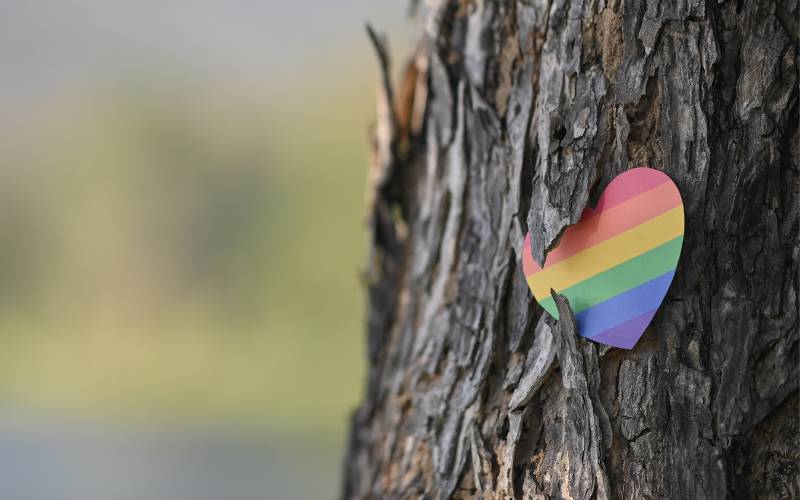Why climate change is an LGBTQ+ issue
Research
Climate change is not just an environmental issue; it is an LGBTQ+ issue.
From heightened risks of homelessness to systemic discrimination during natural disasters, the impacts of climate change on marginalized groups are far-reaching and devastating. Everyone across the world, no matter who they are, will feel the impact of climate change in some way.
But the simple fact is: LGBTQ+ people, as well as other marginalized communities, disproportionately suffer the consequences.

The continued impact of LGBTQ+ poverty
Decades of research has shown that marginalized groups are more likely to face poverty, discrimination, and violence. Not only is this a day-to-day societal disadvantage, but it also further limits their access to resources and ability to adapt to environmental changes. For example, LGBTQ+ people often face homelessness due to family conflicts and threats of abuse.
In fact, LGBTQ+ youth are 120% more likely to experience homelessness in the US compared to cisgender, heterosexual people. Factors like housing instability, food insecurity, and overall uncertainty about mental health and well-being all contribute to extreme poverty and homelessness – which in turn, is only worsened by the climate crisis.
Studies show that existing inequalities in housing, healthcare, and other areas disproportionately affect queer people during disasters. LGBTQ+ people, particularly BIPOC, are at a significantly higher risk, immediately making them the most vulnerable subculture to natural disasters, rising temperatures, and polluted air. But when the time comes to help out those most in need, privileged sectors of society are consistently prioritized.
Systemic discrimination following climate disasters
Yes – this is already happening. Examples like Hurricane Katrina and the Indian Ocean tsunami both highlight how LGBTQ+ people are systematically discriminated against during climate crises. Following the 2004 Indian Ocean tsunami, the Aravanis (a marginalized group in India who identify outside the male-female binary) were excluded from relief efforts and official documentation. This effectively rendered them invisible in the post-disaster response. Gender theorists Lori Hunter and Emmanuel David highlighted the impact of this in their paper Climate Change and Migration: Considering the Gender Dimensions.
In a national emergency, trans+ people were actively denied access to shelters, and those who did manage to enter encountered discriminatory treatment.
Why more research is needed
Across the world, progressive and informed figures provide solutions to environmental problems head-on, yet their voices are often excluded from the climate movement due to their identity. Vulnerable populations will endure the greatest impacts of climate change, with intersecting issues of racism, classism, and sexism exacerbating the challenges they face.
Natural disasters aren’t the only problem. Increasing toxic air pollutants make low-income communities uninhabitable, leading to forced migration and adverse health effects like asthma and cancer. Research shows sexual and gender minority groups are at higher risk of health disparities due to social stress, yet there's a lack of scientific study on LGBTQ+ health disparities from environmental exposures. It is evident that more research needs to be funded, as well as more effort in uplifting LGBTQ+ voices, to connect these dots and find a solution.
Hope for the Future
Despite facing adversity, the LGBTQ+ community continues to show remarkable resilience and unity, drawing from their experiences of oppression to confront these challenges. Aside from being a largely empathetic community, their role in the fight against climate change is so passionate because, quite simply, they have the most to lose.
The community’s ability to create strong support networks serves as a valuable model for the success of collective action and solidarity. It is becoming increasingly crucial to understand the intersectionality of these issues and work towards comprehensive solutions that address both the urgent climate crisis and the resultant struggles faced by the LGBTQ+ community.

